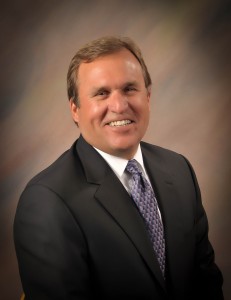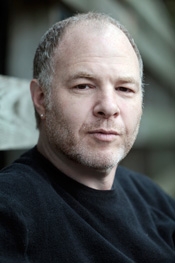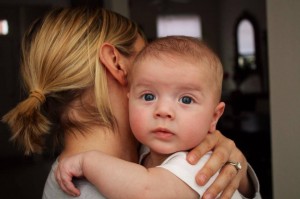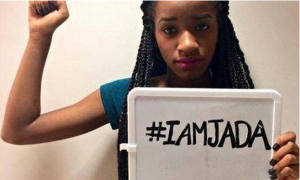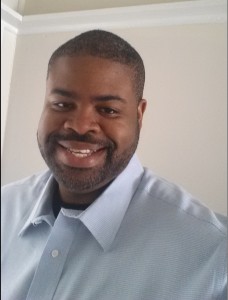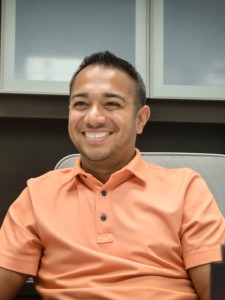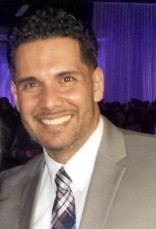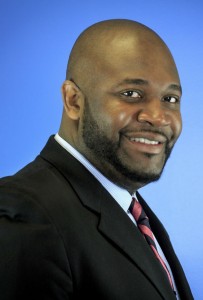It was an unfathomably lenient decision: In June, Virginia’s James Madison University punished three Sigma Chi fraternity members for sexually assaulting a female student on spring break by banning them from campus—after graduation.
Two of the attackers could graduate on time; the other would stay on campus for another year until earning his diploma.
Really?
The pathetic punishment crystallized the frustration felt by so many victims of campus rape: Why even bother coming forward? News of the punishment, or lack thereof, went viral. Even Jon Stewart mocked the story.
But there’s a victim behind the headlines and jokes: Sarah Butters. Butters, who’s pursuing her undergraduate degree elsewhere—“I’m just not proud to have a James Madison diploma,” she says—asked to share her side of the story with NO MORE.
As Told to NO MORE
I went on spring break in 2013 with a large portion of my school to Panama City. Everyone there was there was from Greek life. My parents’ big thing was, “Don’t go with someone you don’t know,” but I knew everyone there.
We were drinking on the beach. I was with friends, and at some point I blacked out. I ended up back at the condos we were renting with my friends.
Over the next few days, I heard rumors about a video circulating. Friends were telling me, “You need to say something to these guys.” I immediately went up to one of the guys who I was closest to and asked him, “Do you have a video of me?” I was wondering what I could have done.
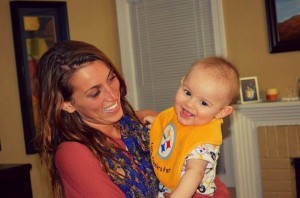 He told me that there wasn’t a video. He lied to my face, but I believed him. But later, one of the guys showed it to one of my friends and said: “I could ruin her life with this.”
He told me that there wasn’t a video. He lied to my face, but I believed him. But later, one of the guys showed it to one of my friends and said: “I could ruin her life with this.”
Friends were telling me what to do: I should press charges; I should just make it go away. I was hearing so many opinions and I couldn’t form my own.
Meanwhile, friends had gotten hold of the video. I was concerned, but I also didn’t want to watch it yet. I was too nervous and helpless. I was dating one of the guys in their frat—I was so close to them.
Two weeks after spring break, I finally sent the video to my best friend, who went to Radford. I needed an outsider to watch it, someone who knew me well. She saw it, and she flipped out. “This looks like what happens before a rape,” she told me. I watched it that night. It was a 90-second video. I was in a bathroom, leaning against a wall, and three guys were groping me, pulling me onto their lap. I kept trying to put my top back on and they’d knock it out of my hand, saying, “You look great.” They were grabbing my breasts, touching me.
I have a scar above my bikini line from an ovarian cyst, and one of the guys kept trying to grab my bikini bottoms to see it. When he tried to do that, I let out a yell. It was such a disturbing yell.
The morning after I watched it, I woke up to a text from one of the guys, saying, “Hey, we didn’t mean for this to be a problem. We’re not sending it around. We can meet up and talk about it.”
I met with them, with my roommate, at my house. I wanted to be in my comfort zone. I get so mad at myself now that I let them in.
They said, “This is an inconvenience for all of us.”
I’ll always remember that. It was such an insincere apology.
I was told by JMU’s judicial affairs office that the common punishment for this kind of harassment is suspension. I was told that it’s very rare for someone to get expelled. I didn’t know what to do—I didn’t want to put myself through the misery of taking action. What if I lost? But I was told, if the judicial board had the video and watched it and could tell who was in it, they’d move forward anyway. So I bought a flash drive and handed them the video. They said they’d review it.
I had a really rough summer emotionally. My grades slipped. I got free counseling at JMU, but it didn’t help.
I was venting with my dad about it a lot. He’s a police officer and he contacted JMU’s director of judicial affairs, Josh Bacon. Bacon said he couldn’t tell if what happened in the video was consensual or not. That was really discouraging. JMU had been my dream school since eighth grade. I trusted them. This is where I felt safe.
I felt I had the short end of the stick. I filed a formal complaint in January 2014. It took JMU over a month to schedule hearings. Once the process started, the guys couldn’t talk to me. If I saw them on campus, it ruined my whole day. It was affecting my whole life, but not theirs at all.
There was a separate trial with each of the three guys. I had to be in the same room during it. It was so disturbing. After the third trial, Josh Bacon said that he’d never seen a case so serious. He told me that he wanted to propose an “abnormal” idea—expulsion after graduation—because they’d just appeal any other punishment, and graduation was coming up anyway. I just started bawling when I heard that. It was not OK. Who would punish them? Who would even know if they were on campus? What if they were tailgating? Or at a reunion? I was told that I’d have to identify them and tell campus police. If they recognized them, they’d be escorted out.
But the burden to identify them was on me. I was devastated.
Bacon went ahead with the expulsion punishment anyway. I read the student handbook; this wasn’t what was supposed to happen. The judicial board had caught them in lies—one guy said he hadn’t grabbed my bikini when clearly he did on the video—it was such crap.
The guys changed their attitude when expulsion was presented. They said they’d earned their diploma and paid for it. They were embarrassed not to be able to bring their kids back to their alma mater.
A local reporter covered my story; it aired locally that June. I didn’t expect it to blow up nationally. I thought it would draw attention to the area but not nationally. The Huffington Post wrote a really fair story about it after that.
When you hear about sexual assault, it’s only recent that the term is “survivor.” It used to be “victim.” I felt like a victim. I felt I never got closure. I never got to move on. But I also got support—from other people who saw the stories, from my sorority who told me how strong I was. My Facebook blew up. Twitter blew up with #standwithbutters. I hadn’t wanted to show myself in these stories, but then I realized if it would help someone else to put a face with the story, I wanted to do it. It helps for people not to read a generic story, but to see who I am.
I filed a federal civil rights violation complaint with the school. That process is going through now. It’s a drawn-out process, but I did it because I don’t want another girl to go through this. If my case was the most serious they’d seen, and I had video evidence, and they still didn’t even get suspended—what would happen to someone else? How could anyone else feel comfortable coming forward?
As for where I am now, I withdrew from JMU. Whenever I used to see a JMU sticker, my heart got happy. But I had to break up with my school.
I’m taking classes at a community college now. I love working with kids, and I want to be a teacher. I’ve always worked to put myself through school, so I need to take one step at a time.
But I’m finding myself through all this. When I saw the NO MORE PSAs, I recognized all the excuses: “She was asking for it. She was drunk.” So I wanted to share my story here.
These are not excuses. I want other women to know—you cannot be bullied into silence.

